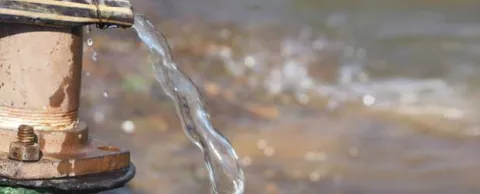
Meghalaya presented its plan to achieve the ‘Har Ghar Jal’ mission to the Department of Drinking Water and Sanitation, Ministry of Jal Shakti, in the Annual Action Plan meeting on planning and implementation of Jal Jeevan Mission (JJM) held via video conferencing.
Jal Jeevan Mission is a flagship program of the Indian government aimed to provide household tap water connection to every rural household in the country by 2024. Meghalaya has 5.89 lakh rural households, out of which tap connections are provided to 93,000 rural households. The state has provided 87,000 tap connections in 2020-21.
The state plans to achieve the target of ‘Har Ghar Jal’ by December 2022. In 2020-21, Meghalaya was amongst the seven states which received a performance incentive grant under the JJM. The other six states were Arunachal Pradesh, Mizoram, Sikkim, Gujarat, Manipur and Himachal Pradesh.
Under JJM, during 2021-2022, Meghalaya is likely to get around Rs 350 crore funds from the central government. The state was urged to well utilize various funds available through the convergence of different programs like Mahatma Gandhi National Rural Employment Guarantee Act (MGNREGS), JJM, Swachh Bharat Mission-Gramin (SBM (G)), 15th FC Grants to PRIs, District Mineral Development Fund, Compensatory Afforestation Fund Management and Planning Authority (CAMPA), CSR Fund, Local Area Development Fund, among others, at village level and a Village Action Plan (VAP) for every village should be devised by making use of all these resources for long-term drinking water security.
The committee advised the state to focus on the planning at the village level and the formation of Village Water and Sanitation Committees (VWSCs) to play a key role in drinking water supply in villages.
The state has been advised to get NABL accreditation/ recognition of all 33 water testing labs immediately and testing of all 100 per cent drinking water sources as per JJM guidelines. Under JJM, priority is being given to water quality surveillance through the active participation of frontline functionaries as well as involving the local community.
As many as five people, especially women, are being trained in every village to use the Field Test Kits to test water quality. As FY22 begins, the joint review exercise to finalize the Annual Action Plans (AAPs) started from 9 April.



